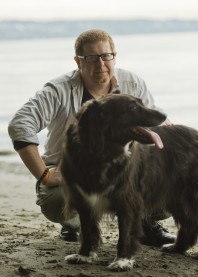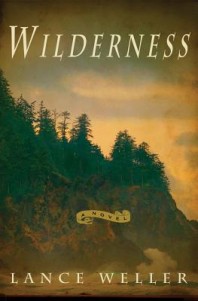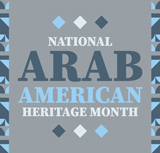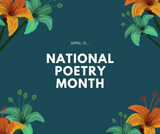 One of the things you get asked after having had a book accepted for publication is how you came to write that book. You get asked this a lot and, after all, you wrote the book so you’d think the answer would be easy. You’d think, having had the last year of getting the manuscript ready to finally come out and after all the years before that while writing it, that I’d have the answer down. Sadly, no. The best I can do is to think back to a specific moment—a flash that flashed and then was gone but that lit the narrative for me in a way I’d not seen before. That moment came out in the wilderness beside the ocean and it came because I was just thirsty enough.
One of the things you get asked after having had a book accepted for publication is how you came to write that book. You get asked this a lot and, after all, you wrote the book so you’d think the answer would be easy. You’d think, having had the last year of getting the manuscript ready to finally come out and after all the years before that while writing it, that I’d have the answer down. Sadly, no. The best I can do is to think back to a specific moment—a flash that flashed and then was gone but that lit the narrative for me in a way I’d not seen before. That moment came out in the wilderness beside the ocean and it came because I was just thirsty enough.
There is a remote place in Washington State known as Wedding Rocks. Why it’s called this I do not know and, frankly, I do not want to know because knowing would, for me, take something away from it. Some small mystery would be spoiled. Guidebooks will tell you there is water available at Wedding Rocks but I found more there than just a freshet tumbling down out of the woods—I found, finally, the direction my novel, Wilderness, and my character, Abel Truman, needed to take.

“A major addition to a small field of historically-set NW fiction, Wilderness has the added weight of being set alternately during the Battle of the Wilderness in the Civil War, and in the wilderness itself, where Abel Truman seeks escape. Weller vividly renders the mayhem of war and how those wounds are psychically carried to a vastly different landscape decades later.”—Rick Simonson, Elliott Bay Book Company
The Rocks lie at the midpoint of a primitive loop trail in the northwestern corner of Washington just south of the Makah Indian reservation. Known as the Ozette Triangle or the Sand Point Loop, to get there you have to drive until you run out of pavement then drive a little more until you reach Lake Ozette and the trailhead. There’s electricity out there but no plumbing; Wi-Fi but no cell phone reception and the thick trees that keep the place dark and green were old before Columbus came.
The trail that leads out to Wedding Rocks is raised and planked to keep the voracious forest from seasonally claiming it all back and the path runs through Sitka Spruce and Western Hemlock that seethe in the wind. Deer fern and bracken fern, bog laurel and salal, all twist together and rear up to either side and put one in mind of the prehistoric. You look for things out in the woods. The wind blows, the trees creak. Water is everywhere but none of it fresh. The time on your wrist feels geologic.
I went there alone in the middle of the week and late in the season because I’d reached a juncture in my life where decisions needed to be made and such moments require privacy. At the time, I’d lost a job without having another to fall back on and had no prospects other than a rock-solid marriage and whatever writing talent I’d managed to husband along like a miser. I’d had a little early success with a short story or two but, since their publication, I’d had no more bylines and it had been years. What I did have was a big mass of pages I hoped would someday be a novel but, even after long effort, I was no closer to seeing the real shape of it than when I’d started it. But I knew the place Abel needed to visit was the place I hiked through now and so this was where I needed to go to try and figure it all out. And, in the back of my mind lay the question, having so little to show for so many years struggling, of whether I was really made for such work as writing.
The trail out to the Coast runs through the forest and the forest eventually opens up onto a broad, cleared area known as Ahlstrom’s Prairie for the Swede who’d cleared the land with fire and tried to make a life there. He failed but the land stayed cleared and the sky that vaulted it that day was a grey bell that promised rain but did not deliver. I ate lunch off the trail there, drank too much of my water, and went on.
By the time I reached the ocean, my drinking water was gone. It is not a long hike but I’d planned poorly and over-indulged. I was thirsty but had only the view to drink. The beach that the trail spills out on to is known as Cape Alava and represents the westernmost point in the contiguous United States. You can go no further for there is nowhere further to go. I remember thinking about Ahlstrom, wondering how it must have felt to live so close to the very end of the line, wondering what it does to a person not to have a farther horizon to travel to, to have everything behind you and nothing more ahead save water and sky. But I was thirsty and went on to Wedding Rocks where the guidebook assured me would be water.
Wedding Rocks is a tide-washed headland with a jumble of boulders upon which ancient tribes etched symbols. The petroglyphs are of faces and clamshells, whales and gulls and, chillingly, a single two-masted sailing ship. Again, there is the feeling of pre-history and scales of time to beggar the imagination and when the wind blows here—and it is always blowing—it moans over the rocks.
The seep of the stream running down off the hill was easy to find, the water quick enough to avoid brackishness but, even thirsty as I was, I took time to filter it. Having run through a mechanism, the water was tepid, tasting of plastic, but it quenched and I remember thinking that Abel would just scoop up a mouthful in his good right palm if he was thirsty. And in that moment, that flash, I realized this long, wild stretch of coast would not be just a place Abel would visit but be the place where he would live and thence turn back from. I realized that this prehistoric terminus-land, this westernmost point of continental westering, would be Abel Truman’s last home.
I’d like to say that Wilderness clicked into place as a whole at that moment just as I’d like to say that, in solidarity, I dipped a palm to taste the water the way that Abel would have, but it did not and I did not. What happened were two more things in quick succession: I went home to my rock-solid marriage and then I went to work.
Lance Weller has published short fiction in several literary journals. He won Glimmer Train’s Short Story Award for New Writers and was nominated for a Pushcart Prize. A Washington native, he has hiked and camped extensively in the landscape he describes. He lives in Gig Harbor, WA with his wife and several dogs.


